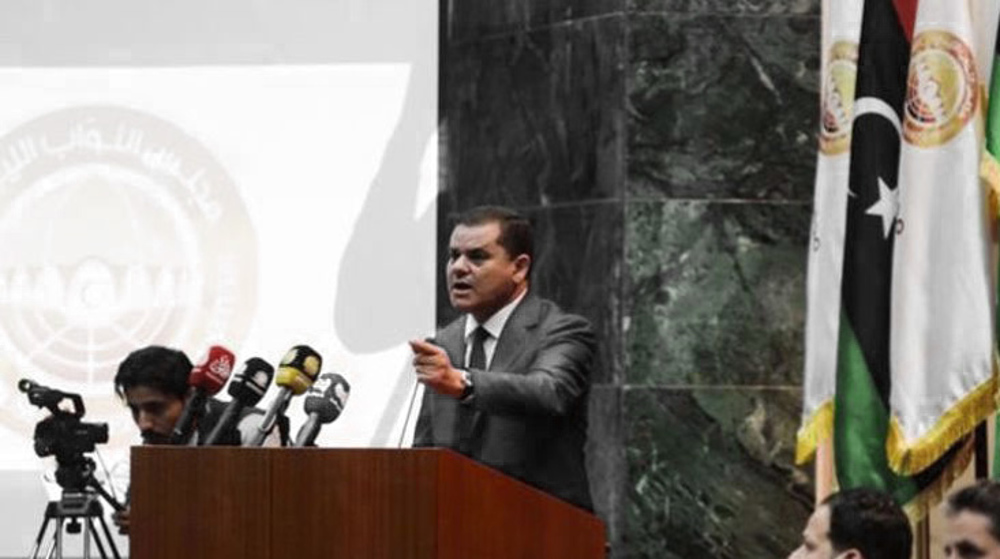Libya's rebel commander makes U-turn on support for interim government
The self-styled commander of Libya's rebel forces, Khalifa Haftar, says his armed militia will not be subordinate to the current Libyan government, claiming that they would only submit to a popularly-elected authority.
Haftar said in a speech marking the anniversary of the founding of his so-called Libyan National Army (LNA) on Monday that the rebel forces "won't be subject to any authority except to an authority that will be directly elected by the people."
The Libyan military strongman, who is based in the eastern city of Benghazi, said that his militia would withstand any pressure and that the LNA would hinder the city's attempts to work with the Tripoli-based interim government authorities.
Haftar's remarks contradicted his position in February when he voiced support for the new transitional government and a "peaceful and democratic alternation of power" in Libya. His office had also welcomed the appointment of the new government at the time, hailing its leader and authorities as "national figures."
Libyan political parties agreed in United Nations-mediated talks on February 5 to form an interim unity government to lead the North African country to elections slated for December 24.
They also designated Abdul Hamid Dbeibeh as prime minister and tasked him with forming the new government as part of efforts to end the long-running political crisis in the oil-rich country.
Haftar's comments come days after US Ambassador to Libya Richard Norland said the strongman could play a role in unifying Libya's military establishment.
The Libyan prime minister said in an interview with Reuters last month that it would be "very difficult" to unify the country's military, but there was an ongoing dialog with Haftar.
Years of violence and division began in Libya following the NATO-backed overthrow of former dictator Muammar Gaddafi in 2011.
Haftar and his rebels had been fighting a former unity government before that of Dbeibeh's, too. His rebels sustained a severe defeat last June and fled from the areas they previously controlled in western Libya.
US fighter aircraft shot down ‘in friendly fire’ amid aggression on Yemen
Yemeni FM: Israel’s sponsors accountable for ongoing aggression on Sana’a
Eight Palestinians killed as Israel attacks Gaza school, hospitals
VIDEO | Rome, Milan host new protests in solidarity with Palestinians
Dec. 21: ‘Axis of Resistance’ operations against Israeli occupation
Spain jurists demand ties with Israel ties be cut
VIDEO | Press TV's news headlines
VIDEO | Iran honors top Science Olympiad medalists











 This makes it easy to access the Press TV website
This makes it easy to access the Press TV website